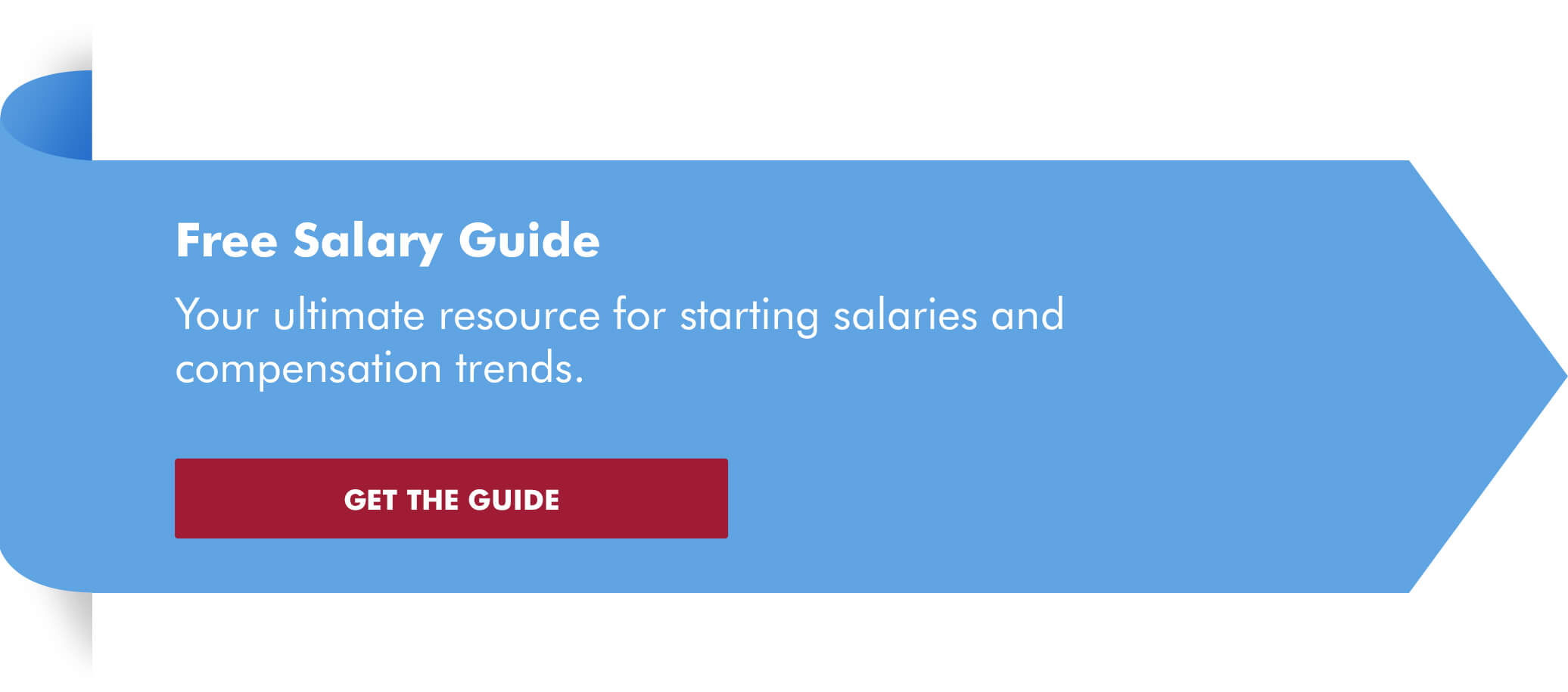How to Negotiate Salary: Tips for Recent College Graduates
Did you just receive a less-than-stellar offer for an entry-level job? Despite what you may have heard, the starting salary for recent college graduates is negotiable.
It’s natural to feel apprehensive about requesting high compensation at such an early stage of your career. However, many employers are willing to meet the salary expectations of talented candidates who are fresh out of college.
Here are some tips for salary negotiation success.
Do your salary research
Take time to review the average starting salary ranges for the position you’re considering. Robert Half’s latest Salary Guide is a good starting point for your research. You can also use our Salary Calculator to help gauge the salary level you could potentially earn in your local market.
Before heading into compensation negotiations with a potential employer, it can be helpful to consult data from the Bureau of Labor Statistics (BLS) about the current unemployment rate — including for your profession.
Robert Half’s Demand for Skilled Talent report provides current BLS information at a glance. It also includes survey data about in-demand roles and hiring trends by profession, which can be useful information for your job search.
Examine company information, too
Conduct company research ahead of salary negotiations as well. Determine whether the firm recently had any significant staff reductions, for example. And, if possible, find out how long management has been looking to staff the position you’re seeking.
If the company has been making budget cuts through layoffs, your chances of a successful salary negotiation could be reduced — depending on the role you’re interviewing for. On the other hand, you may have more leverage in the discussion if the employer has faced challenges in recruiting for the position you’re offered.
Consider benefits and perks
Most employers offer much more than a salary as part of a compensation package. Negotiating better employee benefits — such as solid healthcare coverage, tuition reimbursement, an employer-sponsored retirement savings plan or generous vacation time — can be a compelling reason to accept a smaller salary.
And don’t forget about flexible work arrangements. If you’d like the option to work remotely all or part of the time, you might be able to request this option, especially if the employer is eager to hire you but can’t budge on salary.
Negotiate with concrete examples
Do you have previous work experience? Were you an intern or an apprentice? Describe how your skills and experience in those roles can translate to a return on investment for a potential employer.
Preparing a value validation project (VVP) could be a useful exercise for this purpose. Information compiled for a VVP can be used in salary negotiations. Explain how your efforts improved operations at an organization while you were there. Be sure to provide concrete examples rather than vague descriptions.
Be persuasive, not demanding
Don’t approach a salary negotiation with a list of demands. Your task is to present a clear argument and persuade employers that you’re skills and experience — limited as they might be — should command a higher salary than what is currently on offer.
Be sure to rehearse your arguments and counterarguments to address any holes in your reasoning. And if you’re confident that you can deliver value to the company, be sure that comes through in the salary negotiation process using the tips covered here.
Want actionable job search advice from experienced Robert Half leaders? Read what they have to say!






